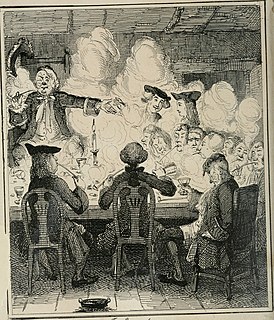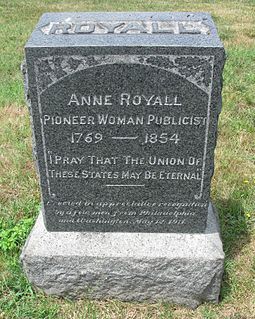A Quote by Marquis de Sade
Chimerical and empty being, your name alone has caused more blood to flow on the face of the earth than any political war ever will. Return to the nothingness from which the mad hope and ridiculous fright of men dared call you forth to their misfortune. You only appeared as a torment for the human race. What crimes would have been spared the world, if they had choked the first imbecile who thought of speaking of you.
Related Quotes
The first person who, having enclosed a plot of land, took it into his head to say this is mine and found people simple enough to believe him was the true founder of civil society. What crimes, wars, murders, what miseries and horrors would the human race have been spared, had some one pulled up the stakes or filled in the ditch and cried out to his fellow men: "Do not listen to this imposter. You are lost if you forget that the fruits of the earth belong to all and the earth to no one!
So here we are in a country with more wheat and corn and more money in the bank, more cotton, more everything in the world-there's not a product that you can name that we haven't got more of than any other country ever had on the face of the earth-and yet we've got people starving. We'll hold the distinction of being the only nation in the history of the world that ever went to the poor house in an automobile.
It must not be thought that it is ever possible to reach the interior earth by any perseverance in mining: both because the exterior earth is too thick, in comparison with human strength; and especially because of the intermediate waters, which would gush forth with greater impetus, the deeper the place in which their veins were first opened; and which would drown all miners.
With all of the history of war, and the human race's history unfortunately has been a good deal more war than peace, with nuclear weapons distributed all through the world, and available, and the strong reluctance of any people to accept defeat, I see the possibility in the 1970's of the President of the United States having to face a world in which 15 or 20 or 25 nations may have these weapons.
Here is the infallible test. Imagine yourself in a situation where you are alone, wholly alone on earth, and you are offered one of the two, books or men. I often hear men prizing their solitude but that is only because there are still men somewhere on earth even though in the far distance. I knew nothing of books when I came forth from the womb of my mother, and I shall die without books, with another human hand in my own. I do, indeed, close my door at times and surrender myself to a book, but only because I can open the door again and see a human being looking at me.
The only thought in the world that is worth anything is free thought. To free thought we owe all past progress and all hope for the future. Since when has any one made it appear that shackled thought could get on better than that which is free? Brains are a great misfortune if one is never to use them.
If those millions squandered on designing missionaries had been deposited in funds for the support of yourselves, when old age, misfortune, or sickness (from which none are exempt,) overtakes you, or for the distressed of your race, what a heaven of happiness you would have created on earth: ye would now be an ornament to your sex, and ages to come would call you blessed. But it is in vain to try - a priest-ridden female is lost to reason. Why? because she has surrendered her reason to the ... missionaries ... the orthodox; they are the grand deceivers.
All feelings that concentrate you and lift you up are pure; only that feeling is impure which grasps just one side of your being and thus distorts you. Everything you can think of as you face your childhood, is good. Everything that makes more of you than you have ever been, even in your best hours, is right. Every intensification is good, if it is in your entire blood, if it isn't intoxication or muddiness, but joy which you can see into, clear to the bottom.
The three values which men had held for centuries and which have now collapsed are: mysticism, collectivism, altruism. Mysticism — as a cultural power — died at the time of the Renaissance. Collectivism — as a political ideal — died in World War II. As to altruism — it has never been alive. It is the poison of death in the blood of Western civilization, and men survived it only to the extent to which they neither believed nor practiced it.
Aestheticism and radicalism must lead us to jettison reason, and to replace it by a desperate hope for political miracles. This irrational attitude which springs from intoxication with dreams of a beautiful world is what I call Romanticism. It may seek its heavenly city in the past or in the future; it may preach 'back to nature' or 'forward to a world of love and beauty'; but its appeal is always to our emotions rather than to reason. Even with the best intentions of making heaven on earth it only succeeds in making it a hell - that hell which man alone prepares for his fellow-men.
If literature is to transcend political interference and return to being a testimony of man and his existential predicament, it needs first to break away from ideology. To be without "isms," is to return to the individual and to return to viewing the world through the eyes of the writer, an individual who relies on his own perceptions and does not act as a spokesman for the people. The people already have rulers and election campaigners speaking in their name.





































